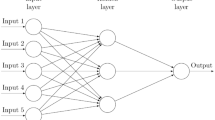Abstract
The COVID-19 outbreak is moving individuals globally. Monitoring social media and internet news is now vital to grasping this phenomenon and its impact. This study’s goal is to offer a method for capturing important concepts and themes addressed in the mainstream media and social networks and then apply it to the COVID-19 outbreak. This study compares articles and news, then visualizes the evolution and influence of the COVID-19 epidemic articles. The COVID-19 articles dataset from Kaggle is utilized for experiments. Various articles use the dataset to examine COVID-19 reviews. The studies use datasets and models such as Decision Tree (DT), Logistic Regression (LR), and Extra Tree Classifier (ETC), with F1 score, precision, and recall being evaluated. To improve accuracy, Term Frequency-Inverse Document Frequency (TF-IDF) is applied to the extracted keywords. The assembled model enhances this research, and the Logistic Regression (LR) model provides the highest accuracy at 90%.
Access this chapter
Tax calculation will be finalised at checkout
Purchases are for personal use only
Similar content being viewed by others
References
Makridakis, S., Spiliotis, E., Assimakopoulos, V.: Statistical and machine learning forecasting methods: concerns and ways forward. PLoS ONE 13(3) (2018). https://doi.org/10.1371/journal.pone.0194889
Lai, C.C., Shih, T.P., Ko, W.C., Tang, H.J., Hsueh, P.R.: Severe acute respiratory syndrome coronavirus 2 (SARS-CoV-2) and coronavirus disease-2019 (COVID-19): the epidemic and the challenges. Int. J. Antimicrob. Agents 55(3) Elsevier B.V. (2020). https://doi.org/10.1016/j.ijantimicag.2020.105924
Shimizu, K.: 2019-nCoV, fake news, and racism. Lancet 395(10225), 685–686. Lancet Publishing Group (2020). https://doi.org/10.1016/S0140-6736(20)30357-3
Rustam, F., et al.: COVID-19 future forecasting using supervised machine learning models. IEEE Access 8, 101489–101499 (2020). https://doi.org/10.1109/ACCESS.2020.2997311
Zagrouba, R., Khan, M.A., Saleem, M.A., Mushtaq, M.F., Rehman, A., Khan, M.F.: Modelling and simulation of COVID-19 outbreak prediction using supervised machine learning (2021). https://doi.org/10.32604/cmc.2021.014042
Kumar, A., Garg, G.: Systematic literature review on context-based sentiment analysis in social multimedia. Multimed. Tools Appl. 79(21–22), 15349–15380 (2019). https://doi.org/10.1007/s11042-019-7346-5
Yousaf, A., et al.: Emotion recognition by textual tweets classification using voting classifier (LR-SGD). IEEE Access 9, 6286–6295 (2021). https://doi.org/10.1109/ACCESS.2020.3047831
Ali, H., Salleh, M.N.M., Saedudin, R., Hussain, K., Mushtaq, M.F.: Imbalance class problems in data mining: a review. Indones. J. Electr. Eng. Comput. Sci. 14(3), 1552–1563 (2019). https://doi.org/10.11591/ijeecs.v14.i3.pp1552-1563
Singh, M., Jakhar, A.K., Pandey, S.: Sentiment analysis on the impact of coronavirus in social life using the BERT model. Soc. Netw. Anal. Min. 11(1), 1–11 (2021). https://doi.org/10.1007/s13278-021-00737-z
Alsaeedi, A., Khan, M.Z.: A study on sentiment analysis techniques of Twitter data (2019). www.ijacsa.thesai.org
Agarwal, A., Xie, B., Vovsha, I., Rambow, O., Passonneau, R.: Sentiment analysis of Twitter data, association for computational linguistics (2011). http://www.webconfs.com/stop-words.php
Alhajji, M., Al Khalifah, A., Aljubran, M., Alkhalifah, M.: Sentiment analysis of tweets in Saudi Arabia regarding governmental preventive measures to contain COVID-19 (2020). https://doi.org/10.20944/preprints202004.0031.v1
Muthusami, R., Bharathi, A., Saritha, K.: COVID-19 outbreak: tweet based analysis and visualization towards the influence of coronavirus in the world. http://lemma-tijdschriften.nl/
Barkur, G., Vibha, G.B.K.: Sentiment analysis of nationwide lockdown due to COVID 19 outbreak: evidence from India. Asian J. Psychiatr. 51. Elsevier B.V. (2020). https://doi.org/10.1016/j.ajp.2020.102089
Horry, M.J., et al.: COVID-19 detection through transfer learning using multimodal imaging data. IEEE Access 8, 149808–149824 (2020). https://doi.org/10.1109/ACCESS.2020.3016780
Kaur, C.: Sentiment analysis of tweets on social issues using machine learning approach. Int. J. Adv. Trends Comput. Sci. Eng. 9(4), 6303–6311 (2020). https://doi.org/10.30534/ijatcse/2020/310942020
Ding, F., Kang, X., Nishide, S., Guan, Z., Ren, F.: A fusion model for multi-label emotion classification based on BERT and topic clustering, p. 36, October 2020. https://doi.org/10.1117/12.2579255
Acosta, M.J., Castillo-Sánchez, G., Garcia-Zapirain, B., De la Torre Diez, I., Franco-Martín, M.: Sentiment analysis techniques applied to raw-text data from a csq-8 questionnaire about mindfulness in times of COVID-19 to improve strategy generation. Int. J. Environ. Res. Public Health 18(12) (2021). https://doi.org/10.3390/ijerph18126408
Li, S., Wang, Y., Xue, J., Zhao, N., Zhu, T.: The impact of covid-19 epidemic declaration on psychological consequences: a study on active weibo users. Int. J. Environ. Res. Public Health 17(6) (2020). https://doi.org/10.3390/ijerph17062032
Arras, L., Montavon, G., Müller, K.-R., Samek, W.: Explaining Recurrent Neural Network Predictions in Sentiment Analysis, June 2017. http://arxiv.org/abs/1706.07206
Zulqarnain, M., Ghazali, R., Ghouse, M.G., Mushtaq, M.F.: Efficient processing of GRU based on word embedding for text classification. Int. J. Inform. Vis. 3(4), 377–383 (2019). https://doi.org/10.30630/joiv.3.4.289
Patel, R., Passi, K.: Sentiment analysis on twitter data of world cup soccer tournament using machine learning. IoT 1(2), 218–239 (2020). https://doi.org/10.3390/iot1020014
Sailunaz, K., Alhajj, R.: Emotion and sentiment analysis from Twitter text. J. Comput. Sci. 36 (2019). https://doi.org/10.1016/j.jocs.2019.05.009
Ishaq, A., et al.: Extensive hotel reviews classification using long short term memory. J. Ambient Intell. Humaniz. Comput. 12(10), 9375–9385 (2020). https://doi.org/10.1007/s12652-020-02654-z
Gong, Y., Luo, H., Zhang, J.: Natural Language Inference over Interaction Space, September 2017. http://arxiv.org/abs/1709.04348
Matsuo, Y., Ishizuka, M.: Keyword Extraction from a Single Document using Word Co-occurrence Statistical Information. www.aaai.org
Commodaro, A.G., Pedregosa, J.F., Peron, J.P., Brandão, W., Rizzo, L.V., Bueno, V.: The imbalance between Treg and Th17 cells caused by FTY720 treatment in skin allograft rejection. Clinics 67(7), 805–813 (2012). https://doi.org/10.6061/clinics/2012(07)17
Asghar, M., Faheem Mushtaq, M., Asmat, H., Saad Missen, M.M., Khan, T.A., Ullah, S.: Finding correlation between content based features and the popularity of a celebrity on Twitter. Int. J. Comput. Sci. Issues 11(4), 177–181 (2014)
Author information
Authors and Affiliations
Corresponding author
Editor information
Editors and Affiliations
Rights and permissions
Copyright information
© 2022 The Author(s), under exclusive license to Springer Nature Switzerland AG
About this paper
Cite this paper
Rubab, S.F. et al. (2022). The Comparative Performance of Machine Learning Models for COVID-19 Sentiment Analysis. In: Ghazali, R., Mohd Nawi, N., Deris, M.M., Abawajy, J.H., Arbaiy, N. (eds) Recent Advances in Soft Computing and Data Mining. SCDM 2022. Lecture Notes in Networks and Systems, vol 457. Springer, Cham. https://doi.org/10.1007/978-3-031-00828-3_37
Download citation
DOI: https://doi.org/10.1007/978-3-031-00828-3_37
Published:
Publisher Name: Springer, Cham
Print ISBN: 978-3-031-00827-6
Online ISBN: 978-3-031-00828-3
eBook Packages: Intelligent Technologies and RoboticsIntelligent Technologies and Robotics (R0)




